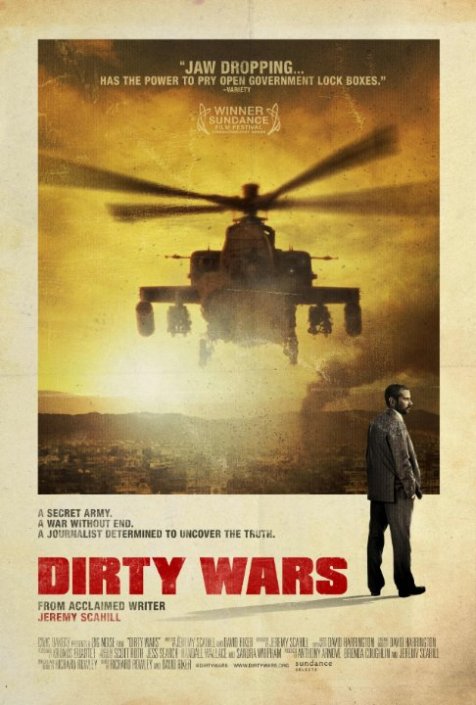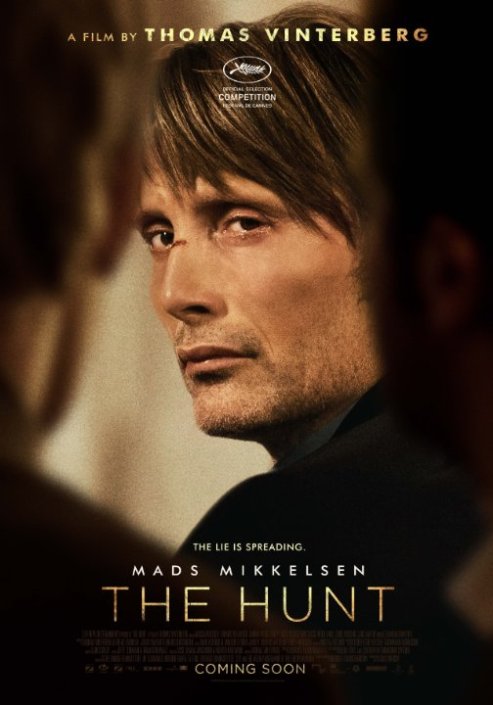So, if your country kept you in solitary confinement for 17 months without even charging you with a crime, and after that confinement you spoke against your country, which led your country to target you for assassination, how would that make you feel? That should have been the lead for the next entry in my Oscar documentary challenge, but unfortunately, the plot was lost…
Of the five nominated documentaries, Dirty Wars seemed to be the entry that is not as shocking as it thinks it is. I’ve pulled some quotes from the movie, and if these comments on the war on terrorism indeed are surprising, then Dirty Wars may be what you need if you have just come out of a coma:
– After Jeremy Scahill, the investigative reporter at the center of this film (and who you may have seen on talk shows and cable news outlets), asks a question about lethal operations (aka drone strikes) to a government official, another government official off-camera says:
We can’t acknowledge that a lethal operation outside of a war zone has occurred.
The on camera government official eventually says the following (paraphrase):
There are almost like there are two laws… Americans would be extremely surprised if they knew the difference between what they believe a law says and how it has been interpreted in secret.
Scahill bravely goes to Somalia to find more information, describing Somalia as a testing lab for the future of war, and the future looks bleak. He interviews a Somali warlord, who has been used by the American government to interrogate “suspected terrorists”:
America are the war masters. They know (killing) better than me. They are teachers. Great teachers.
Scahill also says that “America has been trying to kill its way to victory” in the war on terror, but they have created more terrorists in a self-fulfilling prophecy. He also ponders on when a war on terror ever ends. Again, not revolutionary ideas or questions.
All this makes for a weird viewing experience. Everything you see should make you enraged, sad, and completely fed up with our government and its lack of respect for the laws and the Constitution it purports to uphold and protect. Scahill briefly returns home to the United States, and describes how unfulfilling “normal” life is after being out on “the front” of the war. But perhaps he and the director should have spent more time in his home country. He touches on the complete unresponsiveness of our Congress (again, no surprise there), and that the shows he goes on to discuss issues are more about being combative than actually thinking through the issues being discussed. But what about the outrage deficit, or is it outrage fatigue, that informed Americans have to be feeling? And that they have to be feeling when watching this movie? Our government and military has targeted innocent civilians in foreign countries where we haven’t officially declared war, and done their best to cover atrocities up or create suspicion about who they killed (kind of hard to do when it’s women and children). There seems like there is nothing to be done about a government that is creating its own problems, and has no problem crossing the line for “the greater good.” We sit helpless while our government targets and kills its own citizens with drone strikes in foreign countries without so much as a trial or even a specific description of the charges justifying his execution. Dirty Wars isn’t the first place I’ve heard of these things, and the problem with the documentary is that is doesn’t give the viewer something they can focus on, so that they can maybe get beyond the outrage fatigue, and feel like they or someone will be doing something about all of this. It is like Scahill and reporters like him are in a bubble where to them this is all news, because it should be, but the populace greets such news with a shrug and a “What can you do?”
This is not to say that Dirty Wars is a bad film. It finds its stride a little too late, with the last 25 minutes being what the director and Scahill should have spent more time on- how the killing of Bin Laden turned everything on its head, and what was once in the darkness became celebrated in the light, and created an expansion of the war on terror. The true heart of the film is the transformation of Anwar Al-alawki from moderate to extremist. Al-Alawki was a US Citizen who imprisoned for 17 months in solitary confinement without any charges being made against him. I would have started the film with him and ended it with him as well. I won’t go into too much detail, but what happens to him and his family truly is shocking and surprising. And for every US Citizen, it should sadden and frighten you as well.
My IMDB rating: 7 out of 10 (7.5 if that existed)
My Netflix rating: 4 out of 5 (3.5 if that existed)

